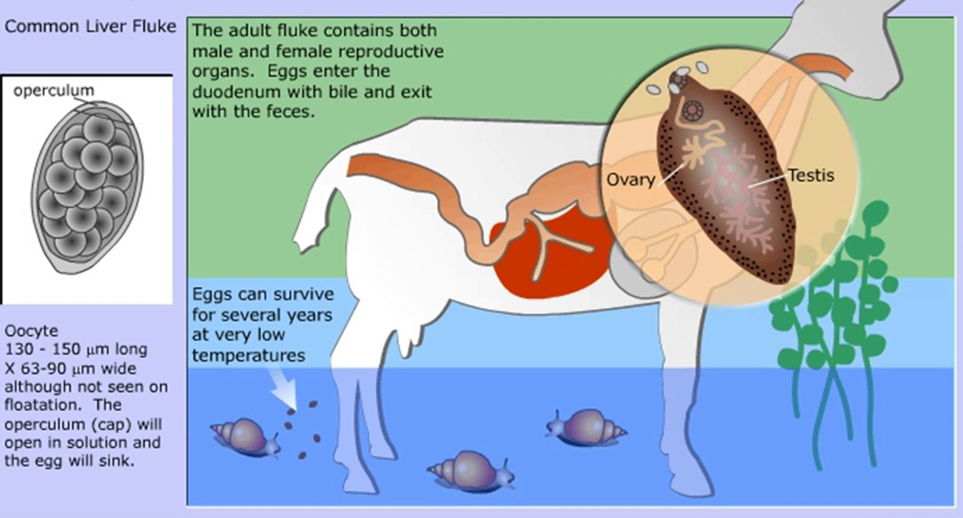Description

Copyright infringement not intended
Picture Courtesy: https://www.youtube.com/watch?v=fkG15FZqdyI
Context: The liver fluke parasite, discovered in California's Colorado River, infects dogs through contaminated water, leading to canine schistosomiasis with symptoms such as lethargy, weight loss, and coughing, emphasising prevention through avoiding contaminated water sources.
About Liver Fluke
- Liver fluke has a complicated life cycle that includes several hosts. Infected animals' faeces release parasite eggs into freshwater environments.
- In freshwater, the eggs develop into larvae that infect specific kinds of snails, such as Galba cubensis and Galba humilis, which act as intermediate hosts. The larvae grow inside the snails before being discharged into the ocean.
- When a dog swims or dives in waterways contaminated with infected snails, a liver fluke enters the body through the skin. Once inside the dog, the larvae travel through the bloodstream to the veins of the intestinal lining, where they develop into adult worms.
- These mature worms then lay eggs, which can spread to different organs in the dog's body, including the lungs, spleen, liver, and heart, causing serious damage and resulting in canine schistosomiasis.
- A liver fluke infection can cause severe disability in dogs, resulting in symptoms such as lethargy, weakness, weight loss, diarrhoea, and abdominal pain. In severe circumstances, the infection can prove lethal.
- Treatment options for sick dogs are available, however, they may not always be effective, emphasising the parasite's devastating impact on canine health.
- While liver fluke primarily affects dogs, it can potentially cause harm to people. When the parasite penetrates human skin, it may cause a swimmer's itch, which is a red skin rash. However, unlike in dogs, liver fluke does not infect or cause disease in people.

Conclusion
- Dogs are seriously at risk from the harmful parasite liver fluke, especially in freshwater settings. The recent spread across the western United States emphasises the need for greater knowledge and preventative actions to safeguard the health of dogs.
|
PRACTICE QUESTION
Q. The liver fluke parasite, Heterobilharzia americana, is typically found in:
A) Cow
B) Snake
C) Dog
D) Cat
Answer: C
|











